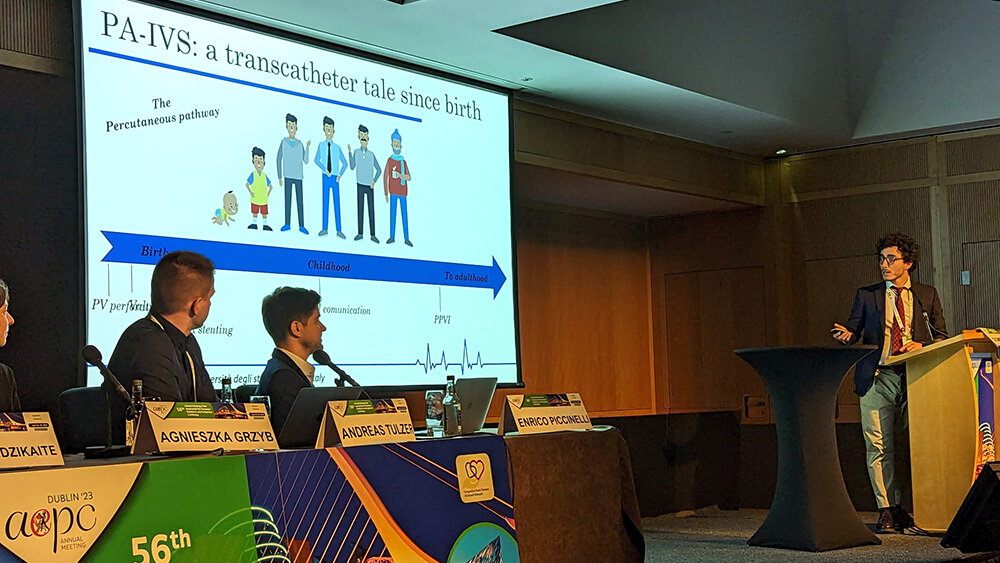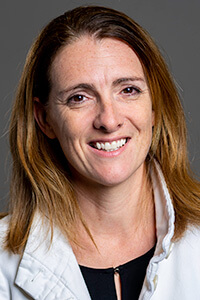
Domenico Sirico (right) speaks during a session at the 2023 Annual Meeting of the Association for European Paediatric and Congenital Cardiology (AEPC) that was organized and led by junior-level doctors in the group.
As Next-Gen attendees become more important to the success of conferences, associations are focusing on engaging with them both during and in between events. Louise Gorringe, associate vice president, association management at Kenes Group in Geneva, Switzerland, shared some tips and suggestions to help organizations engage younger or early-career members.
Facilitate Access
- Provide information targeted to first-time attendees to help them understand how to participate and what to expect.
- Create or support ways for them to ask questions and connect with other early-career individuals before the meeting.
- Offer travel awards, scholarships, or grants to attend meetings.
RELATED: Bridging the Generation Gap at Events

Louise Gorringe
Recognize, Elevate, and Mingle
- Recognize young professionals at the event alongside senior/ high-level members through awards and prizes for research projects, or best papers or articles. The Young Investigator Award — a collaboration between the Japanese Society of Pediatric Cardiology and Cardiac Surgery and AEPC — gives abstract winners the opportunity to present during both organizations’ conferences.
- Elevate the contribution of young professionals by providing specific opportunities to contribute or provide their perspectives. The World Federation of Pediatric Intensive & Critical Care Societies includes three trainee speakers alongside a senior-level expert speaker in each region for its Traveling Around the #PedsICU Community webinar series. Likewise, AEPC invites junior members to take part in a task force that supports a biweekly webinar training series.
- Include more formal mentoring or meet-the-experts sessions, and less formal social events specifically for early-career participants. AEPC’s annual meeting hosted a party for junior-level members, and at a social event at the European Society of Paediatric and Neonatal Intensive Care annual conference, younger professionals can join experts such as session speakers for a drink and discussions at a bar.
Year-Round Professional Development
- Organize workshops and sessions on building skills relevant to early-career professionals, both specific to the field and beyond (think project management, communication, and leadership) at the event and throughout the year. The World Stroke Organization has a two-year program that facilitates the development and growth of individuals as leaders in the field who will be able to lobby governments and define policy in the future.
- Provide opportunities for early-career or young professionals to connect and contribute year-round, with discussion forums, inclusion on committees on the board, in dedicated communications, events, community-building activities, and mentorship programs.
Curt Wagner is digital editor of Convene.
